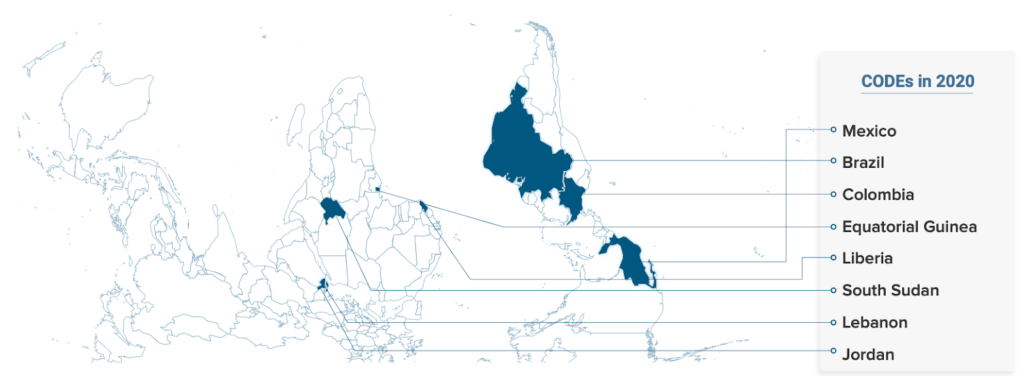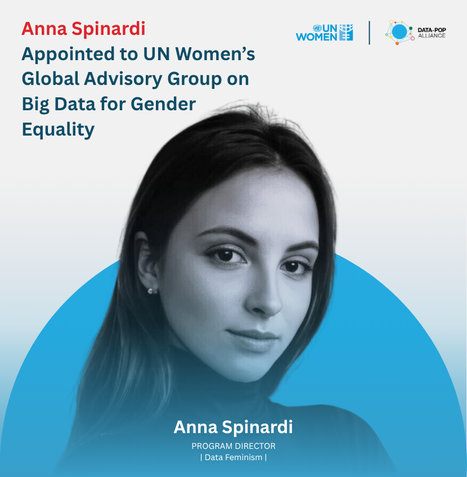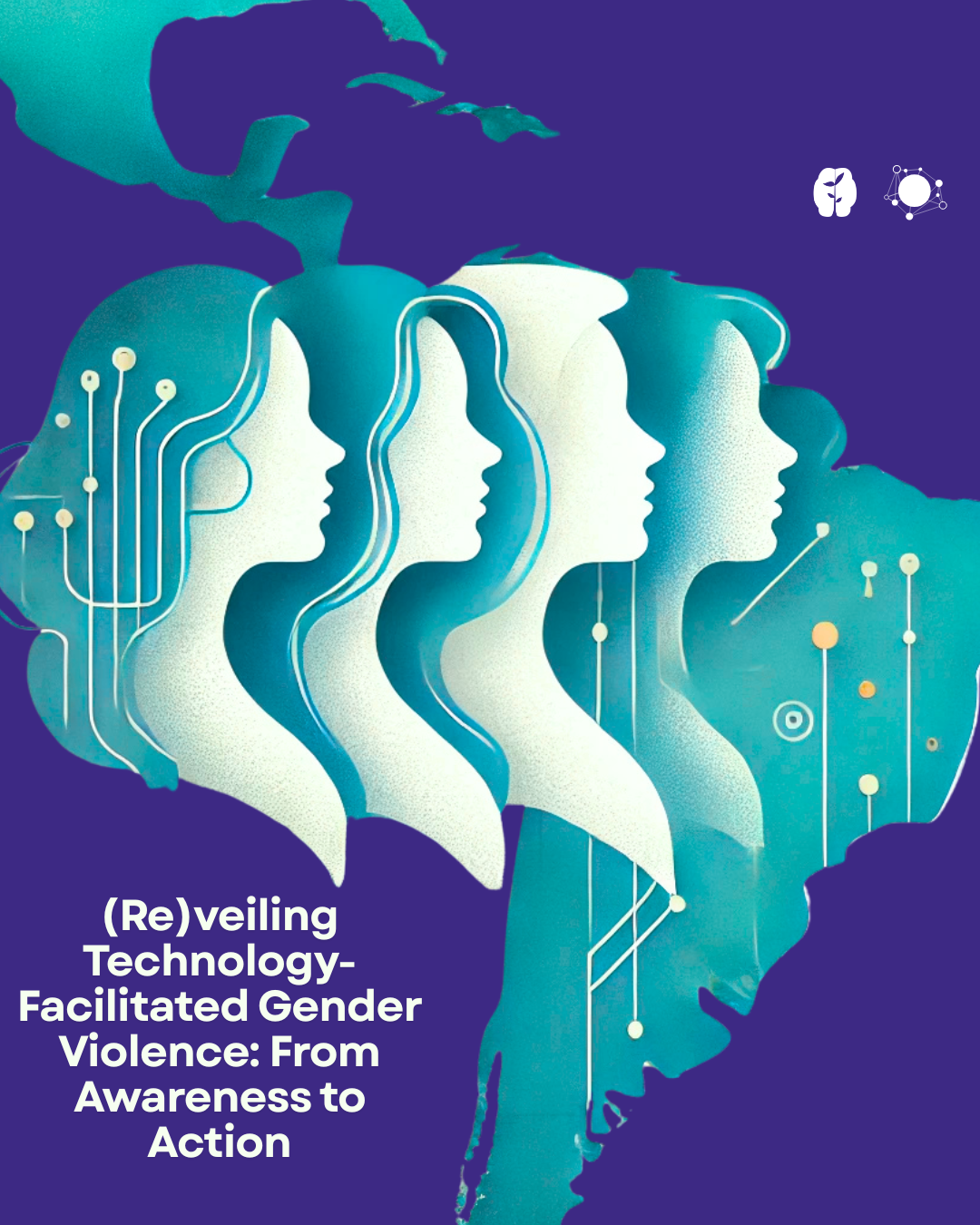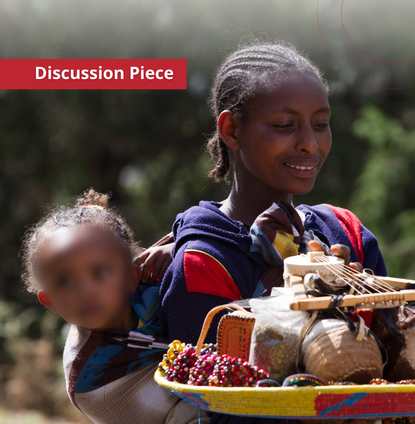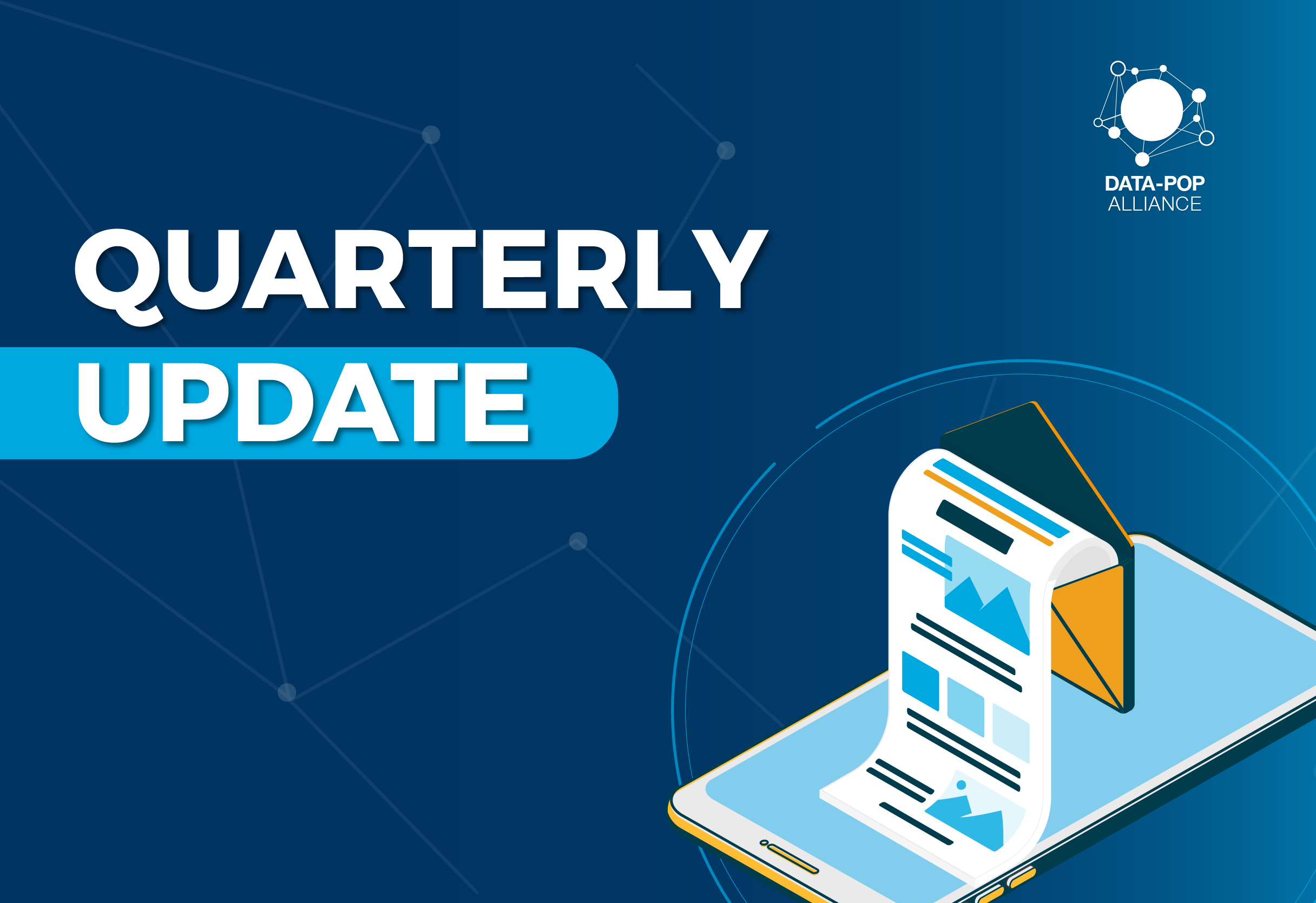DISCUSSION PIECE
What’s the best strategy for ensuring development projects adhere to ethical guidelines? It’s a complex question as answers may vary by sector and context. Yet ethical issues such as bias, representativeness, and data availability and quality have direct impacts on development projects. Ethics and solid governance mechanisms that center community engagement must sit at the heart of these projects for them to be successful, sustainable and transformative.
In the seven years since Data-Pop Alliance’s work began, numerous learnings have led us to rethink our processes. As a result, most of our projects since 2020 include a Council for the Orientation of Development and Ethics (CODE). (See this 2020-2022 report for more information on CODEs.)
Building collaborative projects using the CODE
A CODE is a group of independent stakeholders who voluntarily share their expertise in areas of direct relevance to a project. As an advisory group, it provides oversight to ensure a project abides by key ethical principles including fair and safe use of data and local context-specific concerns. The CODE concept was born during the initial implementation of the Open Algorithms (OPAL) project, a data sharing initiative co-founded by Data-Pop Alliance that aims to unlock the potential of private sector data for public good in a privacy-preserving, participatory and sustainable manner.
CODE responsibilities vary slightly based on project needs but generally include the following:
Acting as the driving force of the creation, function and application of the legal conditions of project governance.
Discussing the local relevance of the project and ways to enhance expected benefits.
Offering recommendations on methodology and the appropriateness of data sources.
Providing input and counsel on data privacy-related issues such as access to and use of data, and legitimacy and purpose in the use of algorithms as well as biases, legal compliance, authorization of output users and community engagement.
Advising on sensitive use cases and potential risks to intended target communities.
Functioning as a forum for dispute resolution and community complaints regarding data use.
Guiding the development of a balanced and inclusive local data ecosystem.
Proposing strategies and means to enhance project visibility and improve outreach to relevant groups.
Acting as conduit to engage concerned stakeholders across sectors.
Aiding in the identification of strategies for possible scaling, broader application and improvement of the project as a whole.
The advisory role of CODE members is not legally binding. Nonetheless, project implementation teams give considerable weight to their feedback and integrate CODE recommendations whenever possible. As with any group of volunteers, CODEs will face challenges, from spotty meeting attendance to low levels of participation. Effective planning early in the project, preparation and active moderation are key ingredients to ‘healthy’ and impactful CODEs.
CODEs are typically composed of around 10 local experts from academia, civil society, government and private enterprise. Data-Pop Alliance implemented CODEs last year in eight countries shown in Figure 1. Most CODE meetings have been held virtually due to the COVID-19 pandemic.
Figure 1: Data-Pop Alliance implemented CODEs in Latin and South America, Sub-Saharan Africa and the Middle East in 2020.
The CODE in practice: Gender-based violence in Latin America
CODEs often steer projects in a new direction. We saw this with a recent project that aimed to identify personal and environmental factors associated with domestic violence reporting rates in three countries. This project required us to access data from government agencies providing services to survivors (police reports, hotline records, counseling and legal support centers, etc.), as well as from national surveys on family violence. Researchers used this data to map domestic violence reporting rates at a district level in each of the cities. In the project’s second stage, we analyzed environmental factors and attempted to understand the relationship between reporting rates and risk factors.
Data-Pop Alliance set up three CODEs in Mexico City, Bogotá and São Paulo for the project, which was funded and supported by the GIZ Data Lab and the Unidas network between 2020 and early 2021. Involving the CODES early in the project resulted in a dramatic shift in our research focus and design that led to meaningful and locally-relevant research and minimized harm to individuals and communities.
CODE members in Mexico, Brazil and Colombia provided high-level consultation and guidance to project leaders on contextual relevance, ethics, personal data protection, community engagement and project visibility. Participants came from organizations including: global and local non-profit and non-governmental agencies (including UN Women Mexico and the UN Office on Drugs and Crime in Mexico City, Oxfam Brasil and Fundación Ideas para la Paz [Ideas for Peace Foundation] in Colombia), public agencies (Secretaría de la Mujer [Secretariat of Women] in Bogotá and the Agencia Digital de Innovación Pública [Public Digital Innovation Agency] in Mexico City) and universities (including the National Autonomous University of Mexico (UNAM) and the University of Los Andes in Colombia), among others.
One of the first issues the CODE took up was narrowing the scope and focus of the project. Initial plans had been to study gender-based violence (GBV) in public and private spaces, but guidance from CODE members made it clear that pandemic-related confinement measures were disproportionately affecting women and girls at home. A literature review confirmed this trend was consistent with previous global health emergencies, and so we focused the project around domestic violence.
Project leaders and CODE members established ethical guidelines for research and data management following best practices in the field including: (1) Non-maleficence or no-harm, (2) de-stigmatization, (3) confidentiality and privacy, (4) lawful, legitimate and fair use of and access to data, and (5) data quality and transparency. Consultation with the CODEs, however, quickly shifted our perspective on the ethics of the original project design.
Our initial goal had been to create maps of domestic violence “hotspots” in the selected cities. Through periodic, virtual meetings with the CODEs, we realized that mapping geographical areas with higher rates of domestic violence posed a considerable risk of stigmatization to communities and individuals. Our team modified the project’s aim to avoid replicating long-standing discriminatory narratives about groups of people and geographical areas—a process that also incorporated suggestions from CODE members.
While we anticipated issues of confidentiality and privacy as primary ethical concerns, the principle of ‘no stigmatization’ became the key to ensuring this project did not violate other issues of no harm, confidentiality, privacy and more. As GIZ and Unidas Network advisor Nora Löhr reflects, the CODE “allowed us to share the outputs and immediately gain feedback during the six-month period of development of the project, offering a promising approach to guarantee its relevance for the local and regional context.” As a result, we were able to produce an analytical model with insights on individual and contextual factors that could be hindering or enhancing the capability to report and register domestic violence across the three settings, and outline data-policy recommendations to increase gender data quality. The reports are being finalized and will be published later this year.
A ‘North Star’ in project design and implementation
CODEs can serve as North Stars and sounding boards. Their members apply a fresh set of eyes to a project’s design, development and implementation and periodically demand that the implementing team question their actions, decisions and findings. The best performance of a CODE relies on its members being independent with low stakes in its outcomes though they want the project to succeed. In sum, CODEs can help ensure that data in development projects adhere to ethical standards by fostering critical self-assessment and accountability through a participatory approach. Strengthening processes to enable this mechanism helps ensure that research projects integrate participatory mechanisms for complying with ethical guidelines.


